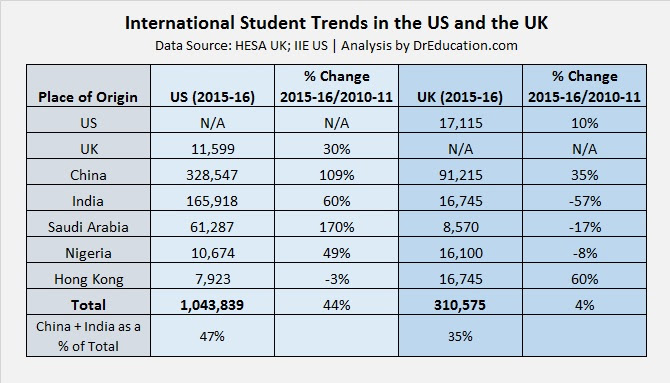“The UK’s pastoral care of international students is widely regarded overseas as being one of the major strengths of the UK boarding school… however there are concerns that loopholes still do exist”
The UK’s boarding school system is world class, and attracts students from around the world, writes UK Education Guide director and co-founder, Pat Moores. But with concerns over the lack of agreed guardianship structures, could the reputation be under threat?
The UK’s pastoral care of international students is widely regarded overseas as being one of the major strengths of the UK boarding school system and one that schools and guardians work hard to maintain.
“UK schools are distinctive in the strength of their commitment to pastoral care – they care about this almost as much as they do about academic matters. We hear that it is this ‘holistic’ approach that is so appreciated by overseas families,” said Diana Stewart Brown, Head of Operations at Keystone Tutors Singapore.
However, there are concerns that certain loopholes still do exist and this then relies on the professionalism and conscientiousness of both schools and guardians to make sure, on a case by case basis, all the gaps are filled.
The legal position according to Matthew Burgess from solicitors Veale Wasbrough Vizard is that the school never loses the overall ‘duty of care’ in the case of full time boarding pupils and in the case of day students the ‘duty of care’ rests more heavily on the guardian as the child is effectively being privately fostered and, if under 16, the family the child is living with has to be registered with social services as a foster family.
“As there is no legally defined guardian role, the provision of non-accredited services is open to interpretation”
There is a recognition that getting pastoral support right, from the very moment a child arrives in the UK, can set the tone for a child’s future happiness. Excellent continuity of communication between admissions teams, houseparents, parents and guardians is critical from day one; “the most successful handover of information from admissions to boarding staff is always achieved through conversation as well as information on file,” said Gareth Collier, principal of Cardiff Sixth Form College.
Regarding ongoing care, there seems to be some consensus from schools where challenges still exist.
“The biggest loophole is the approach that we have to school holidays. Houseparents are often the key pastoral lead in most schools but when the holidays come, and these hard working staff take a well-deserved break, [and] there is little school back up to provide often essential information to parents, students and guardians,” adds Gareth Collier.
“Strong partnerships between schools and guardians are essential to providing excellent care to each young person studying in the UK”
During holiday and exeat weekends when schools close, the role of the guardian therefore becomes even more critical. However, as Caroline Nixon, general secretary of BAISIS, pointed out: “currently neither EU nor non-EU students of any age legally have to have a guardian, although BAISIS believes it is best practice for those under 18”.
Additionally, ensuring high quality guardianship provision is a significant challenge as there is no legal framework as to what services a guardian must provide and their role also depends on the pastoral provision of each individual school.
“The guardian role can cover everything from arranging dental appointments, registering with a doctor to dealing with a child who is potentially about to be excluded from school,” said Julia Evans, Director of Cambridge Guardian Angels.
For this reason, BAISIS has recently created a template for an agreement between individual BAISIS schools and their students’ guardians which outlines the school’s expectations of a guardian’s responsibilities.
AEGIS, The Association for the Education and Guardianship of International Students, has also gone a long way to adding structure to the guardianship role. AEGIS accredits UK guardianship organisations through a rigorous inspection process and Yasemin Wigglesworth, executive officer at AEGIS, said: “more schools are now insisting that an international student has an AEGIS accredited guardian or close family member in the UK as a condition of admission.”
Currently there are approximately 27,000 International students in the UK aged 18 and under with parents living abroad, but only around 5,000 are in the care of AEGIS registered guardians. This is not to suggest that the care provided by non-AEGIS members is sub-standard but, as there is no legally defined guardian role, the provision of non-accredited services is open to interpretation by each provider and many of these students will not have a guardian at all.
As acknowledged, high quality pastoral care is something that sets UK education providers ahead of international competitors but, in the absence of legal frameworks, strong partnerships between schools and guardians are essential to both maintaining this competitive advantage and providing excellent care to each young person studying in the UK.
